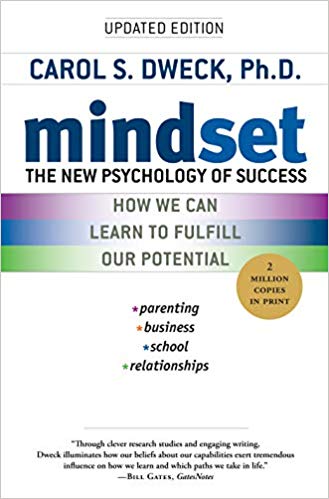

This article is an excerpt from the Shortform summary of "Mindset" by Carol Dweck. Shortform has the world's best summaries of books you should be reading.
Like this article? Sign up for a free trial here .
How does your mind work? How do your mindsets affect your conscious and unconscious actions? Why is it important to understand how your mind works?
We’ll cover how your mind works and how your particular mindset–a growth mindset or a fixed mindset–changes how your mind works. Learn why your mindset matters.
How Your Mind Works
Your mind is constantly monitoring and interpreting what’s happening around you. Your mindset guides how you interpret things. This is how your mind works.
A fixed mindset sets up a mental monologue focused on judging — you feel judged and you judge others. For instance, you might think, “This means I’m a failure,” “What a bunch of losers,” “I’ll never be good at handling money.”
Growth-oriented people don’t constantly judge themselves and others this way. Like people with fixed mindsets, they keep a running mental account of events and feelings, but their interpretations of what’s going on focus on learning and action. They think, “This situation is painful, but what can I learn to avoid repeating it?” and “How can I improve?” Your mindset changes how your mind works.
Can you change from a judging monologue to a growth-oriented one — a mindset based on a belief in change and development? Yes. Often, just learning about the two mindsets and how they affect you can prompt a change in how your mind works. However, completely changing is hard. The fixed mindset hangs around, competing with the growth-oriented ways of thinking that you’re trying to adopt.
Your fixed mindset beliefs about being smart, ambitious, superior, and super-competent may be your source of self-esteem, which makes them difficult to give up for more challenging ideas about developing yourself through effort, taking on challenges, making mistakes, and learning through constructive criticism.
You may temporarily feel that you’re losing your sense of who you are. But the growth mindset frees you from constantly judging yourself so you can be authentic and explore your full potential, changing how your mind works.
People can have a mix of the two mindsets, or they can apply a fixed mindset in certain situations and a growth mindset in others.
It’s important to do some self-analysis and discover what puts you into a fixed mindset — it could be an event or situation, such as a disappointment, setback, or fear that makes you believe you’re incapable or someone else is incapable of something. This is key to changing how your mind works. Everyone has a fixed mindset persona that reminds us of past failures and problems. The key is learning to keep that persona from preventing us or our children from growing.
Summary of Mindsets
Here’s a summary of the two mindsets. Review it daily to remind yourself of the differences and stay in a growth mindset. Ask yourself what opportunities you have today for growth and how you’ll embrace them. Ultimately, this will help you better understand how your mind works–and change it.
Fixed-Mindset
- Core belief: Ability is fixed.
- What happens:
- You feel a need to constantly prove yourself.
- You avoid challenges.
- You get defensive or give up.
- You see effort as pointless.
- You reject critical feedback.
- You feel threatened by others’ success.
- Result: You can’t learn or develop to your full potential.
Growth Mindset
- Core belief: Everyone can learn and grow.
- What happens:
- You focus on learning and growing.
- You welcome challenges.
- You persist in the face of obstacles.
- You see effort as a key to success.
- You welcome critical feedback.
- You learn from others’ success.
- Result: You continue to reach new levels of achievement.
Altering How Your Mind Works Is a Journey
Achieving a growth mindset and changing how your mind works is a journey. You don’t get there all at once — you have to take one step at a time. Here are the beginning steps.
1) Accept having a fixed mindset. Even when you’re on a path to growth, you have lingering fixed-mindset beliefs. In fact, everyone has a mix of fixed and growth-oriented beliefs. You can accept this reality without accepting the negatives a fixed mindset causes.
2) Learn what prompts your fixed mindset. When is your fixed-mindset persona likely to materialize? Possibilities include: when you take on a challenge, when you face obstacles or fail at something, or when a friend or colleague achieves something you envy.
3) Name your fixed-mindset persona. This can help you identify when you’re acting with a fixed mindset and remind you that’s not who you want to be. Pay attention to what happens with this persona is triggered.
4) Confront your fixed mindset: When your fixed mindset materializes, have an imaginary conversation with it. For instance, if you’re about to take on a new challenge, your fixed-mindset way of thinking may prompt you to worry about failure and want to quit. However, you can be ready to counter these beliefs when they come up by reminding yourself that risk is inherent in growth and failures are opportunities to learn.
Since everyone has a fixed-mindset persona, we should have empathy for others who struggle with the limitations of perfectionism, a sense of failure, or a need to always feel superior. This is just how your mind works. Everyone is on a journey. You can learn to recognize and replace fixed-mindset thinking with a belief in your ability to grow and in others’ ability to change too.
———End of Preview———

Like what you just read? Read the rest of the world's best summary of "Mindset" at Shortform . Learn the book's critical concepts in 20 minutes or less .
Here's what you'll find in our full Mindset summary :
- The difference between a growth and a fixed mindset
- How a fixed mindset keeps you back throughout your life: education, relationships, and career
- The 7 key ways to build a growth mindset for yourself






